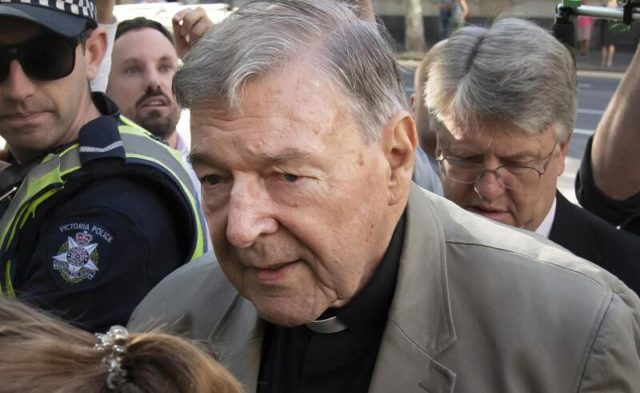Prosecutors in the state of Victoria have charged 10 journalists, five newspaper editors, four online publications and 12 media companies, mainly owned by News Corp and Nine Entertainment and its Fairfax arm, with breaching a suppression order.
MELBOURNE – A trial began on Monday alleging that dozens of journalists, editors and media companies breached an Australia-wide court suppression order in reporting on ex-Vatican treasurer George Pell’s child sex abuse conviction in 2018.
Breaches of suppression orders can be punished with up to five years jail and fines of nearly A$100,000 for individuals and nearly A$500,000 for companies.
Pell was convicted in December 2018 of abusing two choirboys but reporting on the trial and the conviction was gagged by the County Court of Victoria to ensure the cardinal received a fair trial on further charges he was due to face.
Overseas publications, including the Washington Post and Daily Beast, reported the news shortly after the verdict. Some of them geoblocked access to Australia, but others did not.
After that, some Australian media published articles saying they were unable to report major news regarding an unnamed high-profile figure, flagging that the news was accessible online.
The suppression order was only lifted in February 2019, after the second trial was dropped. Pell’s conviction was overturned earlier this year after he served over a year in jail.
Prosecutors in the state of Victoria have charged 10 journalists, five newspaper editors, four online publications and 12 media companies, mainly owned by News Corp and Nine Entertainment and its Fairfax arm, with breaching the suppression order.
The companies have denied the charges and some of the defendants have refused to admit they knew about the order, prosecutor Lisa De Ferrari told the court on Monday.
She said, however, e-mails between reporters and editors showed they were aware of the order.
One editor at The Age said in an e-mail read out in court: “Regarding the suppressed case, I am totally against publishing this story today, as I have said earlier.”
In reply, one of the defendants in the case, The Age’s then editor Alex Lavelle, said in an e-mail he was sympathetic to her view, but that the stories were everywhere and easily accessible.
“We are not breaching the suppression order, just explaining why we can’t report on the story,” he said in an e-mail.
The trial, being run online due to Covid-19 restrictions, is scheduled to last up to 15 days. None of the defendants were in court on Monday.








